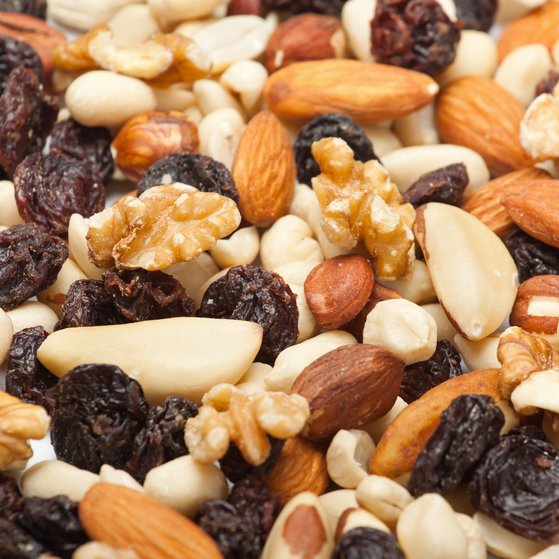Minerals
Minerals are inorganic food components that are found in plant and animal foods. As the organism needs them in different quantities, they are divided into bulk and trace elements.

Information on the individual minerals
The bulk elements include sodium, chloride, potassium, calcium, phosphorus and magnesium. Of the trace elements - iron, iodine, fluoride, zinc, selenium, copper, manganese, chromium, molybdenum - the body requires only very small amounts.
Among other things, minerals play a role in electrolyte and water balance of the body; some are components of enzymes or hormones and thus involved in the control of numerous metabolic processes. Others are indispensable for the structure and function of bones, muscles and teeth.
In Germany, insufficient intakes of minerals - as well as vitamins - and a resulting undersupply are very rare in healthy people with a varied nutrition. Exceptions are iodine and iron. An excessive intake of minerals (as well as vitamins) and a resulting oversupply through normal nutrition with foods such as fruit, vegetables, bread, meat or cheese, without fortified foods and food supplements, is also almost impossible.
However, if high doses of food supplements are taken and fortified foods are consumed additionally, high intakes of micronutrients can occur, increasing the risk of an oversupply of the substances in question. To limit the nutrient intake to a tolerable level, the German Federal Institute for Risk Assessment (BfRshort forGerman Federal Institute for Risk Assessment) has developed recommendations for maximum amounts of vitamins and minerals in food supplements and fortified foods.